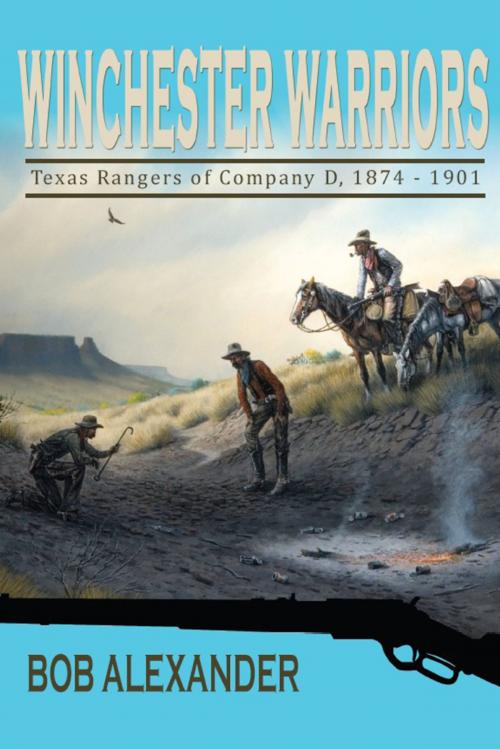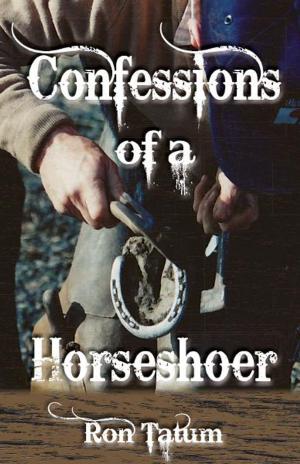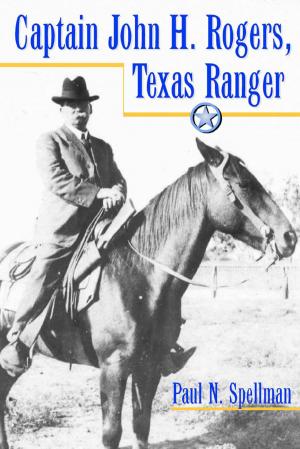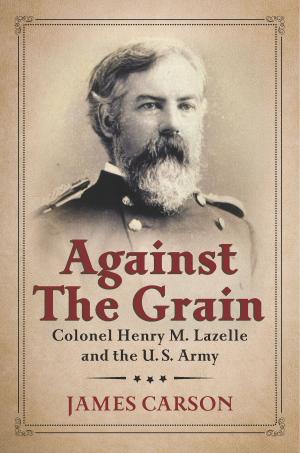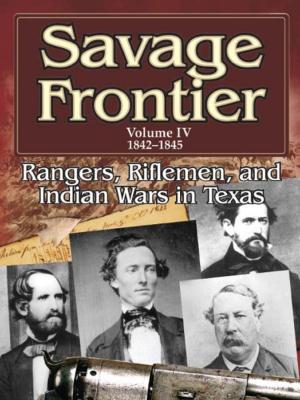Winchester Warriors
Texas Rangers of Company D, 1874-1901
Nonfiction, History, Americas, United States, 19th Century| Author: | Bob Alexander | ISBN: | 9781574413557 |
| Publisher: | University of North Texas Press | Publication: | August 15, 2009 |
| Imprint: | Language: | English |
| Author: | Bob Alexander |
| ISBN: | 9781574413557 |
| Publisher: | University of North Texas Press |
| Publication: | August 15, 2009 |
| Imprint: | |
| Language: | English |
The Texas Rangers were institutionally birthed in 1874 with the formation of the Frontier Battalion. They were tasked with interdicting Indian incursions into the frontier settlements and dealing with the lawlessness running rampant throughout Texas. In an effort to put a human face on the Rangers, Bob Alexander tells the story of one of the six companies of the Frontier Battalion, Company D. Readers follow the Rangers of Company D asover timeit transforms from a unit of adventurous boys into a reasonably well-oiled law enforcement machine staffed by career-oriented lawmen. Beginning with their start as Indian fighters against the Comanches and Kiowas, Alexander explores the history of Company D as they rounded up numerous Texas outlaws and cattle thieves, engaged in border skirmishes along the Rio Grande, and participated in notable episodes such as the fence cutter wars. Winchester Warriors is an evenhanded and impartial assessment of Company D and its colorful cadre of Texas Rangers. Their laudable deeds are explored in detail, but by the same token their shameful misadventures are not whitewashed. These Texas Rangers were simply people, good and badand sometimes indifferent. This new study, extensively researched in both primary and secondary sources, will appeal to scholars and aficionados of the Texas Rangers and western history.
The Texas Rangers were institutionally birthed in 1874 with the formation of the Frontier Battalion. They were tasked with interdicting Indian incursions into the frontier settlements and dealing with the lawlessness running rampant throughout Texas. In an effort to put a human face on the Rangers, Bob Alexander tells the story of one of the six companies of the Frontier Battalion, Company D. Readers follow the Rangers of Company D asover timeit transforms from a unit of adventurous boys into a reasonably well-oiled law enforcement machine staffed by career-oriented lawmen. Beginning with their start as Indian fighters against the Comanches and Kiowas, Alexander explores the history of Company D as they rounded up numerous Texas outlaws and cattle thieves, engaged in border skirmishes along the Rio Grande, and participated in notable episodes such as the fence cutter wars. Winchester Warriors is an evenhanded and impartial assessment of Company D and its colorful cadre of Texas Rangers. Their laudable deeds are explored in detail, but by the same token their shameful misadventures are not whitewashed. These Texas Rangers were simply people, good and badand sometimes indifferent. This new study, extensively researched in both primary and secondary sources, will appeal to scholars and aficionados of the Texas Rangers and western history.
